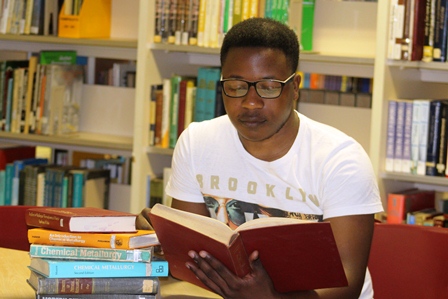DUT is gearing up for the rollout of a new curriculum, which together with its trajectory on e-learning, will become the new signature for education at the University.
While the new curriculum, with a new element dubbed General Education (Gen Ed), is set for full implementation in 2016, the Faculty of Health Sciences will be offering some modules as a pilot project to its students in the Durban Centre next year (2015).
In short, Gen Ed will assist DUT in ensuring that its students are not simply trained for the job market but get a more rounded education. The new curriculum will also expose students to ideas about good citizenship and social engagement and help them learn about diversity and difference, globalisation and internationalisation, literatures and applied ethics.
Speaking about the innovation this week, Professor Ahmed Bawa, DUT Vice-Chancellor and Principal, said the plan was prompted by his annual conversation with first year students in 2011. During the conversation, Prof Bawa asked the students whether they had read works by Zakes Mda, one of South Africa’s greatest novelists. To his surprise, none of them had.
“It gave me a bit of a shock because I thought these young people have just come out of school and they would have studied literature. Not for any fault of theirs, somehow the school system doesn’t get them to read one of South Africa’s most celebrated novelists. That, coupled with the fact that employers of our graduates never complained about our students’ technical training but were concerned about their inability to write well, their poor communications skills and work ethic made me realise that the big challenge was to try and ensure that our students get a much more rounded education. Our task is to ensure that they develop as rounded citizens – not simply as cogs for a machine in the job market,” he said.
Prof Bawa then approached the University Senate, urging it to consider the introduction of general education into the University curriculum. After a lengthy consultation with faculties and departments, Senate decided that 30 percent of the curriculum at DUT would be General Education.
“It’s really about saying that in addition to all the technical training and content training students receive, let’s see if we can also build their capacity to become lifelong learners, write reports better, engage people in communication and so on. General Education will provide students with the opportunity to grow socially, emotionally and intellectually. What this means is that when we have a DUT graduate, they’re not just prepared to do a particular job, but they become better citizens, they’re more active participants in their workplace and communities and they engage with literature, applied philosophy and so on,” said Prof Bawa.
The new curriculum is being linked with the University’s Graduate Attributes Document which defines what the University believes its graduates should have when they graduate. It is also being linked with Student Centeredness, one of the most important threads in the DUT DNA.
Prof Bawa said Gen Ed was probably the biggest curriculum renewal project in the country, saying many other SA universities are exploring the introduction of core modules (of Gen Ed), but this (Gen Ed at DUT) goes far beyond that. “It’s about a significant change in the nature of the curriculum in every programme at DUT,” he said.
Different kinds of Gen Ed modules will be offered in first, second and third year of study. Some will be designed by faculties, while some will be designed by DUT more generally.
Dr Delysia Timm, Adviser: Special Projects in the office of the DVC: Academic, said a number of staff are eager and passionate about the adoption of Gen Ed. She said student achievement will be assessed by lecturers engaging in teaching the modules as well as with input from the University’s Centre for Quality Promotion and Assurance. “At institutional level, we have at least 25 modules developed already. Some faculties have also started developing faculty Gen Ed modules. The various faculties are at different stages of development. There is always opportunity for future modules dependant on the expertise of the lecturers available to develop the modules,” she said.
Gen Ed will give students the opportunity to learn international languages such as Mandarin, Portuguese, French and German. The University is also hoping to introduce a module in Swahili and IsiZulu. While some modules will be optional, some will be compulsory. These (compulsory modules) include writing courses.
“Students will be expected to do writing courses and do some level of Mathematics. They will be exposed to communications courses. There’ll also be a whole range of options for students to take. For example, we would imagine that there would be courses for students who are non science students in the area of science and society for example,” said Prof Bawa.
Prof Bawa added that the entire cost of these courses will be borne by the University. “This is a very big plan. It’s a defining project for DUT and will change the nature of education at the University,” he said.
– Sinegugu Ndlovu
Pictured: Gift Nyamapfene, a third year student hard at work at the University Library.


